CALA recently wrote a guest article for Legal Productivity: Survival guide for the 21st century law firm, on our vision and its relationship to access to justice. Read it below, or at Legal Productivity.
Access to Justice and the Community Activism Lawyering Model
Funding for legal aid to disadvantaged populations has dropped by 60 percent in the last decade, even as the number of people living in poverty has increased. Recent studies estimate that 80 percent of the legal needs of low-income people go unmet as a result of insufficient funding. To offset this funding reduction, many legal aid organizations across the country have shuttered their neighborhood offices and consolidated in professional, affluent downtown areas. Consequently, those with the greatest need, living overwhelmingly elsewhere, become the ones least able to access justice. The harsh reality of centralization, particularly in racially segregated cities like mine—Chicago, is that 9-5 downtown offices means many communities are underserved, not only because the offices are inaccessible geographically but also because attorneys lose those crucial connections with the circumstances, the lives, of those they are serving.
For example, here in Chicago, there are approximately 40 legal services organizations, less than 5 organizations are on the west and south sides combined, which have the largest concentration and highest rates of poverty and violence. Having worked for many years on the west side of Chicago, I’ve encountered many clients who have never even been downtown in their entire lives. For these clients and communities, the need is both overwhelming and desperate, and yet they cannot access the legal aid they desperately need.
Given this increasingly complex web of challenges: massive cuts in funding for legal services, the reactionary centralization of organizations, and its adverse impact on access to justice; it is clear that legal aid organizations cannot continue to operate in the same way. My organization, the Community Activism Law Alliance (“CALA”), is exploring a new approach that we believe may address these challenges but also push the boundaries of what lawyers can achieve: community activism lawyering.
Community activism lawyering is model of lawyering that pushes attorneys to explore beyond traditional law conventions for strategies, practices, and goals with which to serve, and more importantly empower, disadvantaged communities. It combines community lawyering, which emphasizes lawyers going into and integrating legal services within the communities they serve, and activism/social cause lawyering, which calls for lawyers to join social justice movements.
At CALA, we implement the community lawyering model by partnering with grassroots activist organizations in communities facing the greatest challenges accessing legal aid. For each partnership, our partners identify the legal needs of their communities, and we collaboratively create a legal clinic to address those needs. Each clinic is located in the office space of the partner organization, in the community served, and staffed with community volunteers. Just as importantly, we, as community activist lawyers, also provide legal services to the partner organizations themselves and their organizing efforts, including research, policy advocacy, impact litigation on behalf of the organization, legal education, and technical assistance on campaigns. Thereby, we maximize both legal and community resources; by supporting our partners’ activism efforts, our work has the potential to produce greater, empowered, and more durable impact than what lawyers alone can achieve.
We chose community activism lawyering as the best model to meet the needs of underserved communities in Chicago, but also for its cost-effectiveness. Indeed, the model brings access to justice for clients overlooked or rejected by other organizations, in locations geographically convenient to them; increases the capacity of the systematic activism already occurring in their communities; and significantly reduces operational costs. We eliminate nearly all need for (expensive, downtown) real estate by using free, existing space, and our operation expenses are significantly decreased through staffing and administrative support provided by the organizations and community volunteers. Not only does this ensure that the legal clinics are within the communities they serve—accessible and familiar—but it also creates a sense of ownership and investment for the community, all the while creating more funding to be used directly for serving clients.









